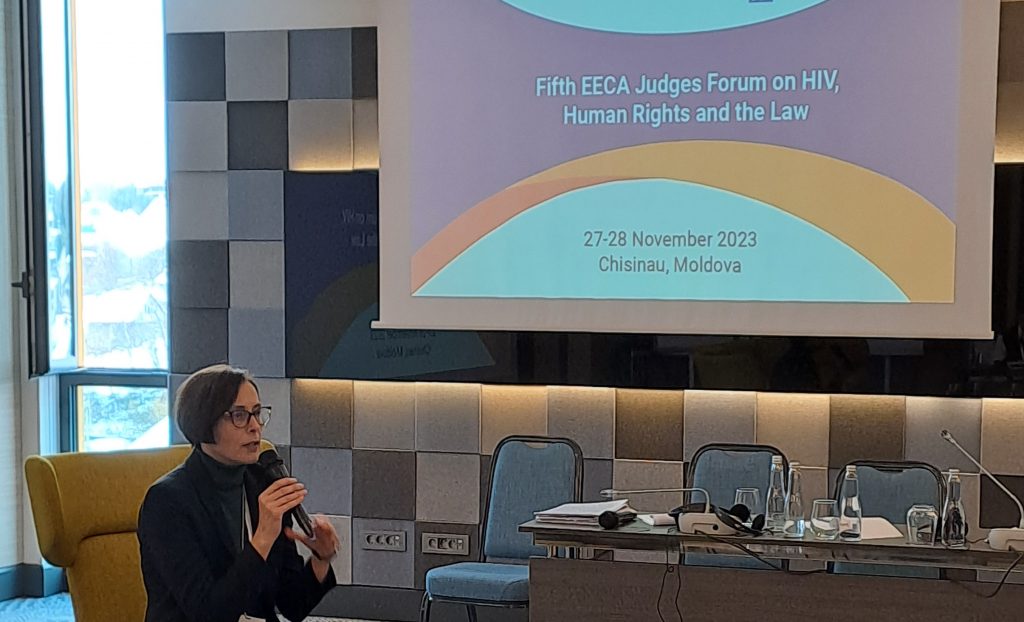SWAN attends the Fifth EECA Judges’ Forum on HIV, Human Rights and the Law in Chisinau, Moldova, where our member HOPS presents the details of their recent Strasbourg victory
On the 27th and 28th of November, the Fifth EECA Judges’ Forum on HIV, Human Rights and the Law took place in Chisinau, Moldova.
In Eastern Europe and Central Asia (EECA), pressing challenges like economic disparities, climate change, and geopolitical conflicts, including Russia’s invasion of Ukraine, are impacting the region’s development. The EECA also faces a growing HIV epidemic, with around 2 million people living with HIV and rising AIDS-related deaths. Some countries are proactively addressing legal frameworks to combat stigma and protect key populations. Despite progress, barriers persist, with many countries criminalizing HIV transmission as well as sex work, drug possession and LGBT ‘propaganda’.
The Judges’ Forum, supported by UNDP, gathered judges to discuss legal responses to HIV, drug policies, human rights, challenges related to migration and European integration, and ways to enhance health outcomes and uphold human rights by defending the peoples’ rights in court.
Regional community networks SWAN, ECOM, ENPUD and EHRA were invited to join the dialogue of the judges and representatives of National Institutes of Justice from Georgia, Kazakhstan, Kyrgyzstan, Moldova, Tajikistan, Ukraine, Uzbekistan and Turkmenistan, and discuss the impact of criminalizing laws and practices to key populations.
SWAN member representative from HOPS, North Macedonia, Natasha Boshkova who is an attorney of law, led an interactive session to discuss the role of the judiciary in protecting the rights of sex workers. The session was constructed around presenting and discussing the practical case of the latest verdict in Strasbourg. After a 15-year legal battle, the European Court of Human Rights recently ruled in favour of four sex workers in Macedonia, who faced degrading and inhumane treatment during a 2008 police crackdown on street-based sex work in Skopje. Twenty-three workers were unlawfully detained, mistreated, and subjected to forced medical tests. Thirteen then initially filed a lawsuit, winning in the Civil Court but facing an overturned verdict in the Court of Appeal. Four continued their fight in the European Court of Human Rights, ultimately receiving €13,300 in compensation. The landmark decision highlights broader issues of police violence, calling for increased scrutiny and reform in policing practices across Central and Eastern European nations.
The EECA Judges’ Forum delves into the real-world impact on individuals whose lives and rights hinge on courtroom decisions. This collective commitment reaches beyond legal complexities; it’s a shared responsibility to champion justice and amplify the voices of those often overlooked. In the fight against HIV, the Forum serves as a reminder that everyone deserves a place in the pursuit of a fair and inclusive society.
